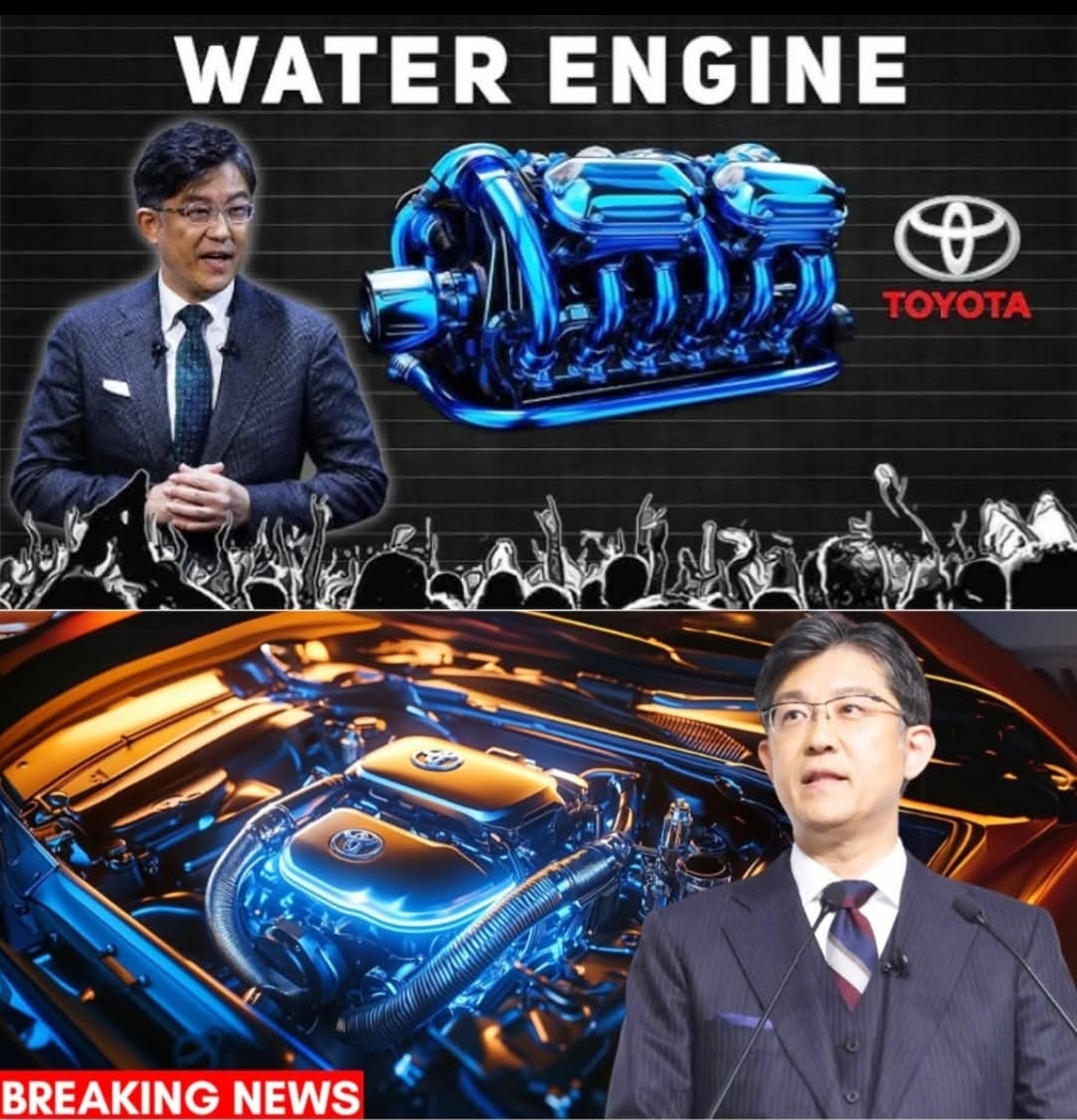
Toyota’s Hydrogen Combustion Engine: Could This Water-Based Tech Make EVs Obsolete?
🚗
In a world racing toward electrification, Toyota has once again dared to take the road less traveled. While most automobile giants are plugging into electric vehicle (EV) technology, Toyota is steering towards something even more revolutionary — a hydrogen-powered combustion engine, often dubbed the “Water Engine.”
🔬 What Is Toyota’s Hydrogen Combustion Engine?
Unlike battery-powered EVs, which store and discharge electricity, Toyota's hydrogen combustion engine burns hydrogen gas — not fossil fuels — to power the vehicle. The result? Zero carbon emissions and only water vapor released from the tailpipe.
This engine mimics traditional internal combustion engines in design and feel but replaces gasoline with compressed hydrogen gas. The innovation bridges the emotional thrill of driving (which some feel EVs lack) with a cleaner, sustainable alternative.
🌊 Why Is It Called a “Water Engine”?
When hydrogen combusts with oxygen inside the engine, the only byproduct is H₂O — water. No CO₂. No harmful pollutants. Just pure water vapor. This has led many to call it the “water engine,” positioning it as a game-changer in clean mobility.
⚡ Could It Make EVs Obsolete?
Let’s compare:
Feature Hydrogen Combustion Electric Vehicles (EVs)
Emissions Water vapor only Zero emissions
Refueling time ~5 minutes 30 mins - several hours
Driving range Comparable or better Varies
Infrastructure Limited (growing) Expanding fast
Raw material dependency Low (no lithium) High (lithium, cobalt)
Driving feel (engine sound) Retained Silent, smooth
While EVs have gained massive ground, hydrogen engines offer quick refueling, long range, and fewer supply chain issues (like rare earth mining). They also address battery disposal and recycling concerns, giving them an environmental edge.
🔧 Toyota’s Progress So Far
Toyota has been testing hydrogen engines in motorsport events, including the Super Taikyu Series, to push the limits of performance and durability. Their goal? To create a carbon-neutral combustion engine that retains the soul of driving.
They’ve also unveiled hydrogen-powered variants of models like the Toyota GR Yaris, signaling their commitment to commercial hydrogen tech.
🌍 The Future of Mobility?
EVs are not going away anytime soon, but Toyota’s hydrogen combustion tech could coexist or even dominate in certain sectors:
Heavy-duty trucks & buses
Long-distance travel vehicles
Countries with limited EV infrastructure
Motorsports & performance cars
Hydrogen engines might be the missing link between the fossil-fueled past and the electric future, offering a third path that combines sustainability, speed, and satisfaction.
🚀 Final Thoughts
Toyota’s hydrogen combustion engine isn’t just a gimmick — it’s a bold vision for the future. While EVs rule today’s green highways, the "water engine" could reshape the race entirely.
As the auto industry battles for the future of mobility, one thing is certain — the age of the internal combustion engine isn’t over. It’s just evolving.
#Toyota #HydrogenEngine #WaterEngine #FutureOfMobility #EVvsHydrogen #CleanTech #CarbonNeutral #Innovation #AutoRevolution #GreenTechnology #ReelItFeelIt
